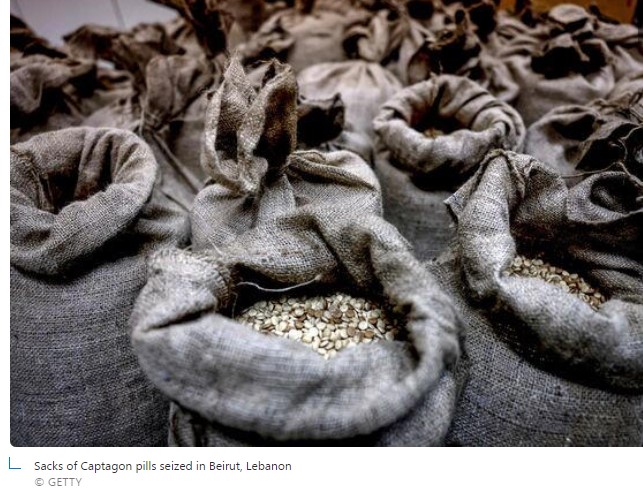Bashar al-Assad’s multibillion amphetamine empire flooding into Europe

Out of the ashes of the brutal Syrian civil war – or revolution against the state, as some call it – was born a sinister trade in illicit drugs.
That trade has now grown into a booming industry, and one that is thought to be propping up the presidency of Bashar al-Assad, who has in recent months attempted to break back into the global community.
The narcotic of choice isn’t part of the Class A cohort, but an illegal and highly addictive amphetamine that has become wildly popular in Saudi Arabia and other Arab states under the name Captagon.
Migrant workers in the Gulf are said to use it as a crutch to help them get through physically demanding work and gruelling hours.
The narcotic of choice isn’t part of the Class A cohort, but an illegal and highly addictive amphetamine that has become wildly popular in Saudi Arabia and other Arab states under the name Captagon.
Rich kids from Saudi Arabia and other Gulf states are thought to be using it for recreational purposes.
Those young and wealthy Arabs are now flocking to the UK to receive treatment after becoming hooked on the drug.
The depth to which people in high-level positions are said to be involved in the trade is wide-ranging.
Powerful associates and relatives of Assad are thought to be spearheading the trafficking, with major players also including businessmen with close ties to the Syrian government, the Lebanese militant group Hezbollah, as well as other members of Assad’s extended family.
An investigation by The New York Times in 2021 found that much of the production and distribution is overseen by the Fourth Armoured Division of the Syrian Army, an elite unit led by a number of commanders, including Assad’s younger brother, Maher al-Assad.
After 12 years of war, the value of the illicit trade is estimated to be at around $10 billion (£8.1 billion) – far more lucrative than any of Syria’s legal exports. Other estimates suggest Assad is taking in as much as $57billion (£46billion) each year.
European ports regularly seize colossal amounts of Captagon from Syria.
In July 2020, Italian police captured a record amount of amphetamines shipped from the Middle Eastern country, around 14 tonnes of pills worth €1billion (£863,000).
In all, 84 million pills of Captagon were discovered hidden inside machinery and large paper cylinders for industrial use. Just two weeks before, in June 2020, police in Salerno, Italy, seized one million Captagon pills hidden in counterfeit clothing.
Captagon has its roots in the Sixties when West German scientists invented a wonder pill to treat attention deficit disorder.







